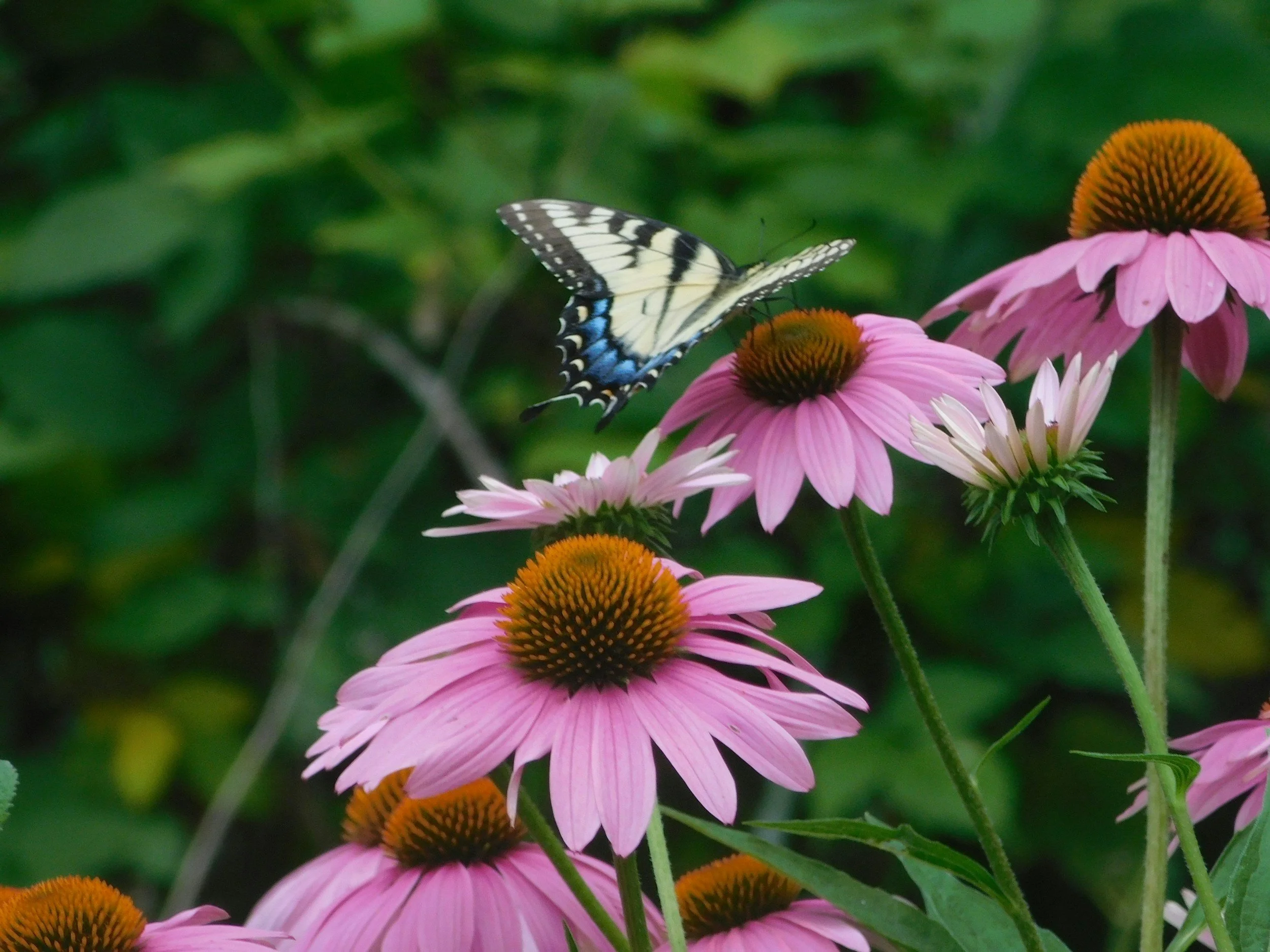Echinacea: Your Immune Boosting SuperHerb
Echinacea
Botanical Name: Echinacea Augustifolia
Echinacea is a beautiful prairie flower - more often known as Purple Coneflower in cottage gardens. A tall dark pink daisy on a single stem with slightly drooping petals, this flower can grow to more than a metre in height and is one of the primary remedies to nourish and boost your immune system.
In herbal medicine, we use the root of this plant usually in a tincture but also ground into capsules.
Recently, I have gone through quite a lot of Echinacea tincture in the clinic. It's just a reliable ally for helping with any immune system issues like recurrent infections, colds and flu. Even difficult and persistent allergies have been helped and cleared at the clinic with the help of wonderful Echinacea.
Herb's History:
Echinacea's powers against infection are widely known and in the USA, the indigenous people most often used it as a remedy against snake bite poisoning.
The great herbalist T Hoffmann said, “Echinacea is one of the primary remedies for helping the body rid itself of microbial infections... especially for infections of the upper respiratory tract, including laryngitis, tonsillitis, the common colds, and other catarrhal conditions of the nose and sinus."
I recently used it to help someone with persistent allergies and also an Eagle type of person who was over-exercising and suffering from more frequent colds and flus. The Echinacea-based herbal formula boosted his immunity and feelings of overall strength and well-being.
Backed by Science:
Echinacea is scientifically proven to boost and activate your immune system.
There are well over 100 published studies on Echinacea. Most of them prove Echinacea's ability to produce more white blood cells in the body, but also to increase their activity.
Echinacea is a potent tonic, and when people have their blood measured before and after treatment with Echinacea tincture, these are the results:
Their neutrophils rapidly increase in the first 24 hours. Neutrophils are white blood cells that last just a few days but they are the first defense against general poisons, bacteria, and waste products.
After around 48 hours, other white blood cells called lymphocytes also almost double. The lymphocytes deal with viruses or making antibodies (kind of like internal antibiotics).
A process known as “phagocytosis” steadily increases over the first 5 days of treatment with Echinacea and then remains at an increased level for as long as the herb is taken. Phagocytosis is the name given to how white blood cells literally swallow up foreign material like debris, toxins, and bacteria.
Echinacea as Your Immune-Boosting Herb
How Safe Is This Immune-Boosting Herb?
Echinacea is a very safe herb. It can be safely taken by the very young, old, and even by a woman who is pregnant or breastfeeding.
How to take it?
Echinacea is not really suitable as a tea. It's best taken as a herbal tincture or ground up and put into capsules.
People who want to boost their immunity or those who are immuno-compromised would do well to take a longer-term preventative dose of Echinacea daily. I really found it boosted my own well-being when I was suffering from poor sleep and low immunity.
For this reason, I've had some ground fresh Echinacea made into our own herbal "ImmunoForce capsules" which boost and nourish your immune system. They also contain garlic and licorice root and so far I've had excellent results with people taking them at the first sign of illness - and warding off a dreaded lurgy.
Are you someone who uses herbal medicine and supplements to boost your own wellness?
If you’ve had any great results with Echinacea or other immune boosting herbs, I’d love to hear about it.
Drop me an email at jess@greenshealth.com.au anytime.
With love,
Jess x

